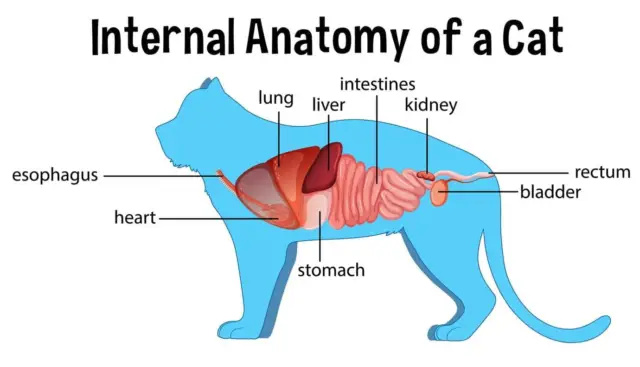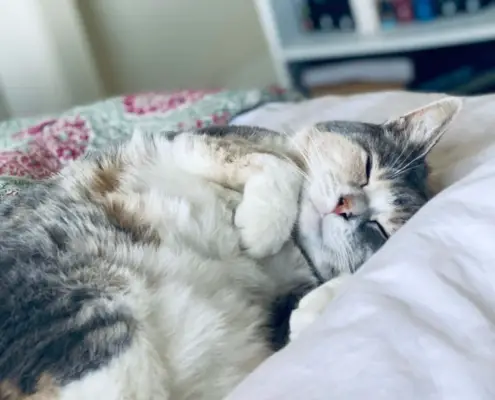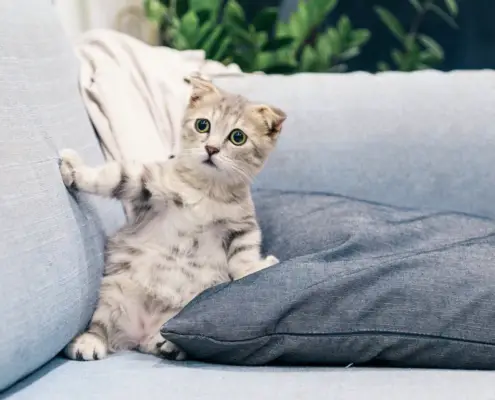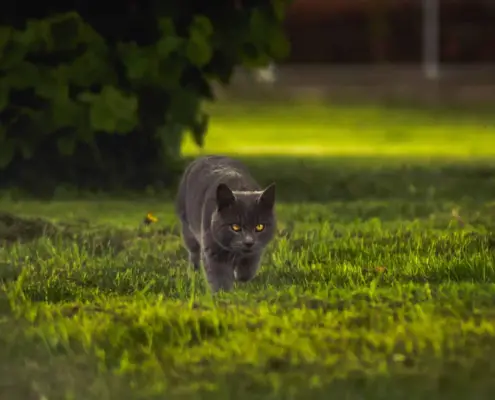
The liver is a vital organ responsible for various functions in a cat’s body, including detoxification, metabolism, and the production of essential proteins. Unfortunately, cats can also experience liver issues that can lead to significant health problems if left untreated. Understanding these issues and knowing how to identify and manage them is crucial for preserving feline health.
Common Causes of Liver Issues in Cats
Liver issues in cats can arise from various causes, including infections, toxins, medications, and underlying medical conditions. One common cause is hepatic lipidosis, a condition characterized by the excessive accumulation of fat in the liver. This condition often occurs as a result of prolonged anorexia or rapid weight loss in obese cats. Other causes include viral or bacterial infections, exposure to certain medications or toxins, and liver tumors.
Symptoms and Signs of Liver Issues in Cats
Identifying the symptoms and signs of liver issues in cats is essential for prompt intervention. Some common signs include loss of appetite, weight loss, vomiting, diarrhea, increased thirst, and frequent urination. Cats with liver issues may also show signs of jaundice, such as yellowing of the eyes, gums, and skin. Additionally, they may have a distended abdomen, exhibit lethargy, experience difficulty breathing, or show neurological abnormalities.
Diagnosing Liver Issues in Cats
When liver issues are suspected, a thorough diagnostic process is necessary to confirm the condition and determine its underlying cause. The veterinarian may start by conducting a physical examination to assess the cat’s overall health and look for specific signs of liver dysfunction. Blood tests, such as liver enzyme analysis and bile acid testing, can provide valuable insights into the liver’s function. Additional diagnostic tools may include ultrasound imaging, X-rays, and liver biopsy to further evaluate the liver’s structure and function.
Treatment Options for Liver Issues in Cats
The treatment approach for liver issues in cats depends on the underlying cause and the severity of the condition. In many cases, supportive care is necessary to manage the symptoms and prevent further damage. This may involve providing intravenous fluids, nutritional support, and medications to alleviate discomfort and support liver function. In certain cases, surgery or other interventions may be required to address specific liver conditions, such as tumors or obstructions.
Managing Liver Issues in Cats Through Diet and Nutrition
Diet and nutrition play a crucial role in managing liver issues in cats. In consultation with a veterinarian, a specialized diet may be recommended to support the liver’s function and provide the necessary nutrients. These diets are typically low in fat, high in quality protein, and contain essential vitamins and minerals. Feeding small, frequent meals can also help reduce the workload on the liver and aid in digestion.
Preventive Measures for Liver Issues in Cats
While it may not be possible to prevent all liver issues in cats, there are certain preventive measures that can minimize the risk. Regular veterinary check-ups can help detect early signs of liver dysfunction and allow for timely intervention. It is also important to provide a balanced diet, maintain a healthy weight, and avoid exposure to toxins or medications that can harm the liver. Vaccinations against common feline viral infections can also help prevent liver issues caused by infectious agents.
Monitoring and Follow-up Care for Cats with Liver Issues
Cats diagnosed with liver issues require ongoing monitoring and follow-up care to ensure their well-being. This may involve regular blood tests to assess liver function, monitor medication effectiveness, and detect any potential complications. The veterinarian may also recommend periodic imaging studies to evaluate the liver’s structure and monitor the progression of the condition. Close communication with the veterinarian is essential to adjust the treatment plan as needed and address any concerns.
When to Seek Veterinary Assistance for Liver Issues in Cats
If a cat exhibits any signs of liver issues, it is crucial to seek veterinary assistance promptly. Liver problems can progress rapidly and have serious consequences if not addressed in a timely manner. Contacting a veterinarian is recommended if a cat shows symptoms such as loss of appetite, weight loss, jaundice, or any other signs of liver dysfunction. The veterinarian can perform a thorough evaluation and recommend appropriate diagnostic tests and treatment options tailored to the cat’s specific needs.
Promoting Feline Liver Health
Preserving feline liver health is of utmost importance to ensure the overall well-being of cats. By understanding the common causes, symptoms, and management strategies for liver issues in cats, pet owners can take proactive steps to promote liver health. Regular veterinary care, a balanced diet, preventive measures, and prompt intervention when needed can go a long way in preserving the health and happiness of our feline companions.
If you notice any signs of liver issues in your cat, don’t hesitate to contact your veterinarian for a thorough evaluation and appropriate treatment. Remember, early intervention can make a significant difference in your cat’s health and quality of life.
If you enjoyed my article, I would appreciate you sharing it with your network.

Sima Ndlebe
Sima writes for CatBuzz. He is interested in Cats, Health and Fitness, and Entrepreneurship.
Published: 11 October 2023
Related Articles
Disclaimer
The content found on CatBuzz.org is presented on an "as is" basis and is intended for general consumer information and education purposes only. Any utilization of this information is voluntary and solely at the user's own risk.
None of the articles or content should be regarded as, or used in place of, veterinary medical advice, diagnosis, or treatment. The information provided on the website is purely for educational and informational intentions and should not be considered a substitute for professional guidance from a veterinarian or other qualified expert. The articles are designed to inform consumers about veterinary healthcare and medical matters that may impact their cat's daily life. It should be noted that this website and its services do not constitute the practice of any form of veterinary medical advice, diagnosis, or treatment. CatBuzz.org explicitly disclaims any liability for any direct or indirect damages or losses that may arise from the use of or reliance on the information contained within the content.
Consumers must consult a veterinarian, veterinary specialist, or another qualified veterinary healthcare provider when seeking advice regarding their cat's health or medical conditions. It is important not to ignore, avoid, or postpone seeking medical advice from a veterinarian or other qualified veterinary healthcare provider solely based on information obtained from this website. If you believe that your cat may be experiencing a medical issue or condition, it is imperative to promptly contact a qualified veterinary healthcare professional.



